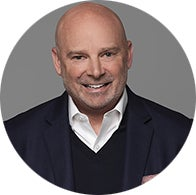Merkle CEO: How the pandemic is shifting marketing priorities and budgets

At the start of the global COVID-19 pandemic, marketing departments around the world took a pause to refocus and ensure they were communicating appropriately with customers during this time of crisis.

Dempster, who was promoted to his current position in June, says companies that had already invested in customer experience, data, and digital transformation remained resilient during the pandemic. Those that didn’t — and are still around — will need to invest heavily in transforming their businesses over the next several months, he adds.
In this exclusive interview with Adobe, Dempster discusses some of the marketing trends he has seen during the pandemic, how priorities have changed, and why the CIO-CMO relationship is all the more important during a crisis.
How are CMO priorities shifting as a result of COVID-19? What are you seeing from clients?
The CMO is starting to take on a much broader role. I think this was already happening, but today a brand is built across the customer experience, which extends from marketing to sales to service to commerce. That’s the way a brand reputation is developed today. And so the CMO’s requirement to be able to work with the balance of the organization from a technology perspective, as well as from those sales, service, and commerce channels, is critical today.
I also think the CMO is starting to be held accountable to metrics that they haven’t traditionally been held accountable for – more P&L-related metrics and the performance of sales, consumer engagement, and satisfaction. So it’s not just about campaign methods or brand methods anymore. It’s real business methods.
Where do you think marketing budgets will go over the next six to 12 months?
Budgets will flow to data transformation and digital transformation, while media spend will be curtailed. I don’t think media will go away. On the contrary, media will continue to persist, especially digitally based media. But I do think customer experience investments will be where marketing will spend its dollars.
Since the pandemic started, we are seeing more purpose-driven advertising and brand-building experiences. Will that continue?
We have political divide, social unrest, and we’re dealing with the greatest health crisis that this generation has ever seen. As a result, people are paying closer attention to social messages and what various brands stand for. Companies are realizing that they need to have certain values and they need to live up to them because today’s consumers are more conscious of these things.
What changes have you made to better meet the needs of your clients during this time of uncertainty?
Our number one and two focal points are our people and our clients. So we’ve spent a lot of time engaging our employee population. For example, every other week I do a livestream to all of our employees. They’re very open mic, transparent conversations. We’ve done a lot of different online events to allow our workforce to collaborate with one another on how to work from home and what tools they are finding most useful.
We’ve also created a lot of outreach and roundtables where our clients can collaborate with one another and with us, talking about the current situation and, as modern marketers, how we need to work in this new environment.
Do you think you’ll have more remote employees even after offices reopen?
Absolutely. I believe workspaces will become more collaborative environments where people come together. But we’ve proved during this time that some people like the flexibility of the work-at-home environment and some people are the polar opposite. As an employer, you’re going to need to be flexible for the top talent you want to have in your company.
What’s the biggest business lesson you have learned from COVID-19?
I’ve learned that leadership in crisis really can tap into your best thinking. It teaches you to have more empathy and compassion, how to communicate more concisely, and how to be a better listener.